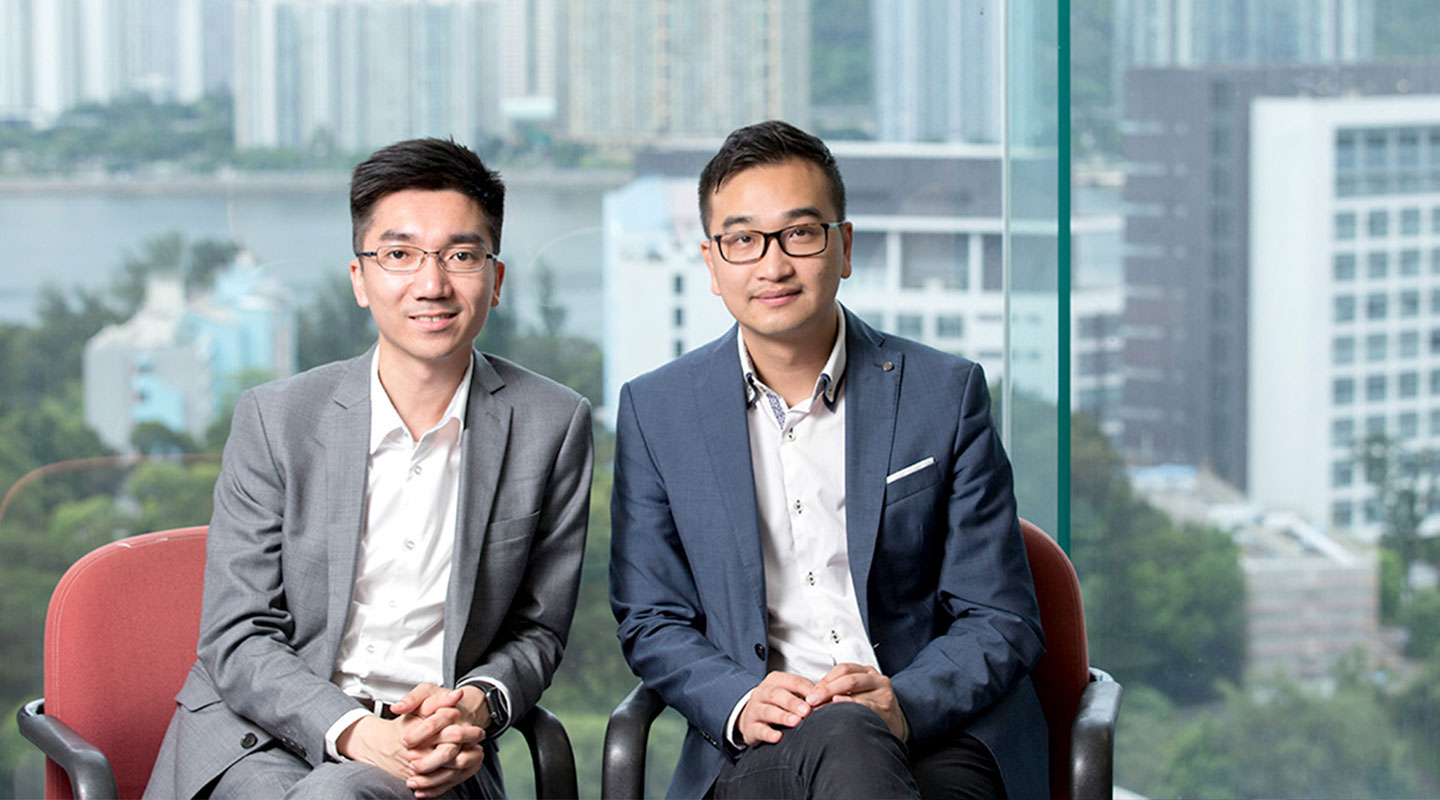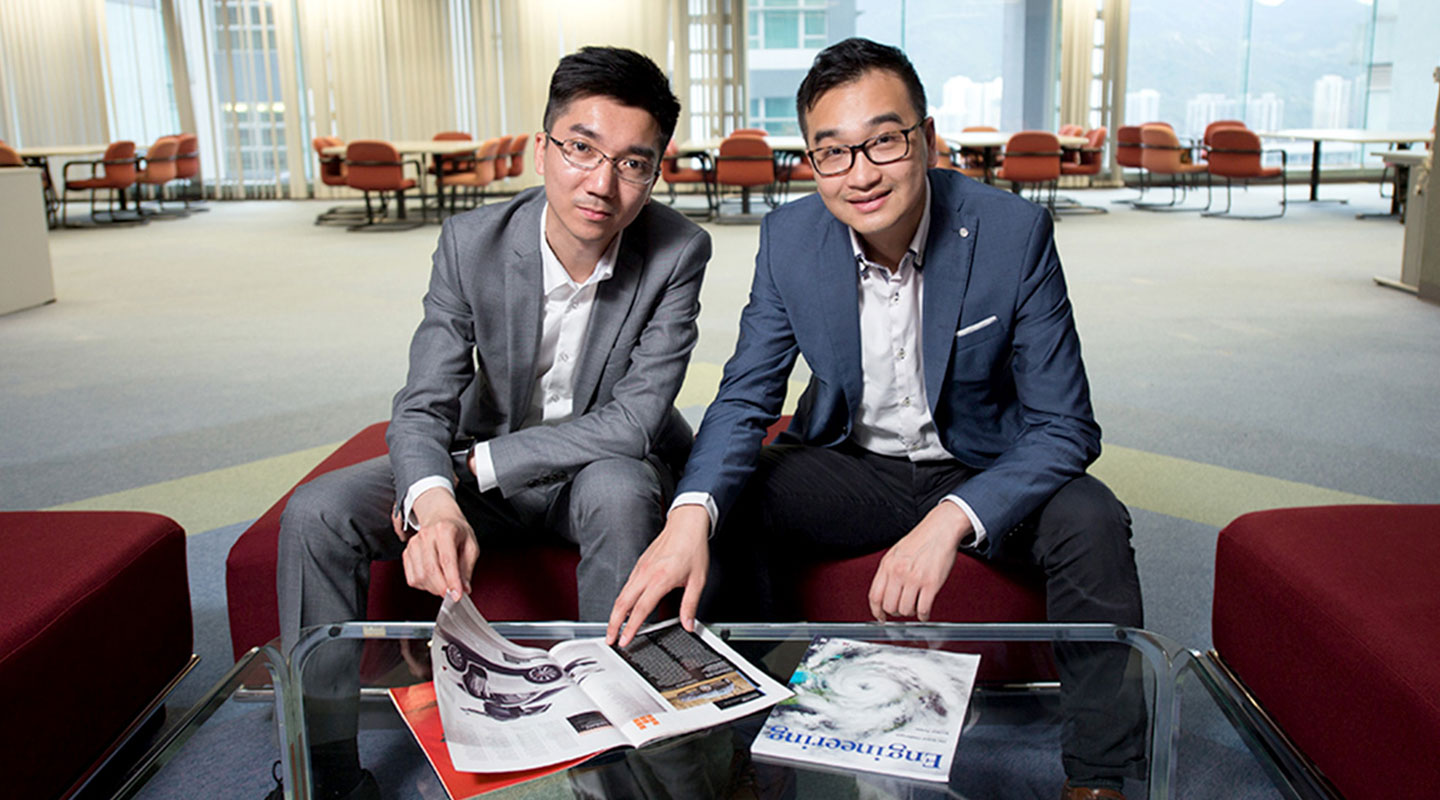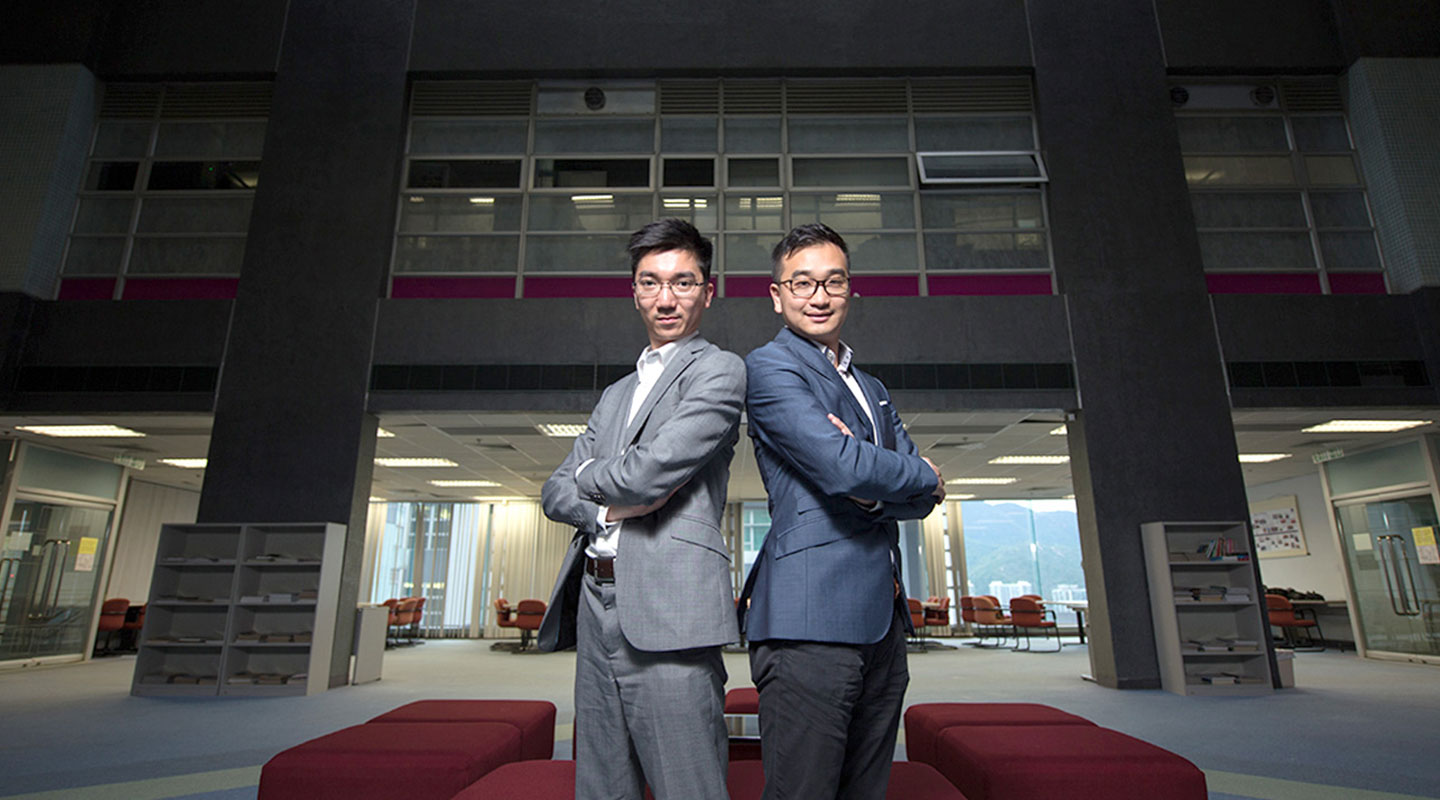Dear readers, With the launch of e-newsletter CUHK in Focus, CUHKUPDates has retired and this site will no longer be updated. To stay abreast of the University’s latest news, please go to https://focus.cuhk.edu.hk. Thank you.
Beyond the Blue Sky
Laurence Chan and Martin Tsang Push the Frontier of Electric Vehicle Development

Electric vehicles (EVs) are getting more and more popular among Hong Kong drivers. From the figures provided by the HKSAR government, the quantity of EVs has soared from less than 100 in 2010 to approximately 5,300 in April 2016. Since many governments are promoting the reduction of greenhouse gases for fresher air, the development of EVs has a promising future. The Hong Kong government introduced EVs in 2009. Laurence Chan and Martin Tsang, graduates of the Department of Electronic Engineering, CUHK, seized the opportunity and founded EV Power Group in 2010 to tap into the EV charging business.
Martin drives the group’s business development and Laurence steers the overall operation. Currently, EV Power is the only charging service provider in Hong Kong. As at March last year, more than 150 charging stations had been built in Hong Kong, covering carparks in government buildings, premium shopping malls and private enterprises. Above 70% of local EV drivers are directly or indirectly using the group’s charging service.

The energy cost of EVs is lower than that of vehicles powered by fossil fuels; however, a major challenge to EV owners is charging and re-charging. ‘We build charging stations for customers. They only need to scan the QR code with their smartphone App “E-Charge” to activate the charging function. Once the charging problem is solved, more people will purchase electric vehicles,’ said Laurence. EV Power entered the mainland Chinese market in September 2014. Within a year, they had established for themselves a trusted brand and became a designated charging service provider of BMW China.
EV charging facilities in China have been undergoing accelerated development in 2016. Charging stations built by EV Power in Beijing, Shanghai, Guangzhou and Shenzhen have exceeded 1,500. In 2015, the group attracted venture fund investors and successfully raised more than RMB 100 million. They aspired to build 5,000 charging stations this year. ‘Compared to Hong Kong, the mainland market has more fundraising platforms—from Angel Fund to Initial Public Offering (IPO)—which are crucial to expanding our market share. With good selling points, you are able to attract investors,’ Martin said.

Martin remarked that Hongkongers value service quality and Hong Kong brands appeal to the mainland customers. ‘The charging process and customer service are intangible themselves. As long as you dedicate yourself to solving customers’ problems, you’d win their trust gradually.’ Laurence and Martin—who are also EV drivers themselves—had both experienced inconvenience due to charging problems, which explains the promptness and readiness with which they act on their customers’ issues with charging. ‘In the mainland, it is not uncommon that charging piles run out of electricity. However, the charging piles we built are 100% reliable. That has won us many partners both in the mainland and abroad.’
‘If I had not studied at CUHK, I would have at most become an engineer in a sizable corporation, much less starting my own business,’ Martin said. He enjoyed the rich learning atmosphere at CUHK and embraced horizon-broadening opportunities such as competitions and exchange programmes. In his undergraduate years, Martin developed a ‘virtual mouse’ and won numerous championships in local technology competitions and eventually went to Fudan University for the 7th National Challenge Cup. Laurence, who also participated in the Challenge Cup at Fudan, was Martin’s undergraduate classmate and roommate at Shaw College. He reminisced, ‘CUHK was the most proactive university in encouraging entrepreneurship in those days. Due to its proximity to the Science Park, quite a number of CUHK graduates started their own businesses, among whom was Ricky Wong. The Faculty of Engineering also sowed entrepreneurial seeds in offering us the basics of entrepreneurship.’

Entrepreneurship has been very much an aspiration among young people in Hong Kong in recent years. But various challenges stand in the way: timing, network, capital, teamwork, etc. ‘The EV business is an emerging industry. The number of startups that manage to survive for six years does not exceed three,’ said Martin. Laurence found personal attributes and resourcefulness obviously critical. After all, the first two years of starting a business is really lonely. One needs to do everything by oneself, without adequate capital and manpower. ‘We have tried over 10 business models since the inception of EV Power. Entrepreneurs have to test their business models in the shortest period of time and with the least capital investment. The key lies in how you keep the two at a minimum.’

By Jenny Lau, ISO
Photos by Keith Hiro
This article was originally published on CUHK Homepage in Aug 2016.